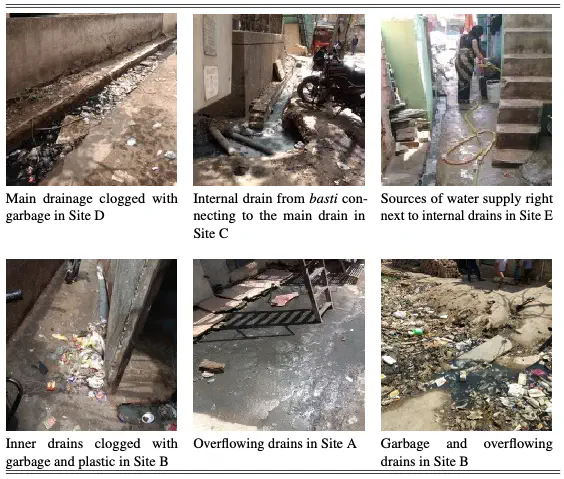Minority Politics and Public Goods Provision in India
 Images from fieldwork in slums in Delhi, illustrating the state of drainage issues in these communities.
Images from fieldwork in slums in Delhi, illustrating the state of drainage issues in these communities.This project is joint work with Melani Cammett, Akshay Dixit, and Poulomi Chakrabarti looking at how social status affects contributions to local public goods. Melani, Poulomi, and I initially started this project interested in examining how accountability mechanisms might have different effects in ethnically diverse versus ethnically homogeneous locations. We anticipated that most types of accountability mechanisms would not work well in diverse locations, for reasons similar to the “diversity deficit” theory and findings in the literature on public goods provision. However, as shown in this paper, our results did not show variation by neighborhood diversity and actually pointed toward variation based on social status—in particular, the idea that persecuted minorities are more likely to respond to a broad variety of accountability mechanisms.
In an additional paper analyzing the results of the same survey experiment, we further explore how public goods provision is affected by social status. We look at how Hindus and Muslims in Delhi slums, who need to coordinate to clear clogged drains in their alleyways, are affected by accountability mechanisms. We find that mechanisms of social accountability are more effective among Muslims, and we attribute this effect to their routine exposure to discrimination and violence—terming this behavior “defensive cooperation.”
In a follow-up project, we aim to further explore the mechanisms through which the minority politics of Muslims in India shape willingness to contribute to public goods. We are developing a pre-analysis plan for a project to be fielded in 2024.

